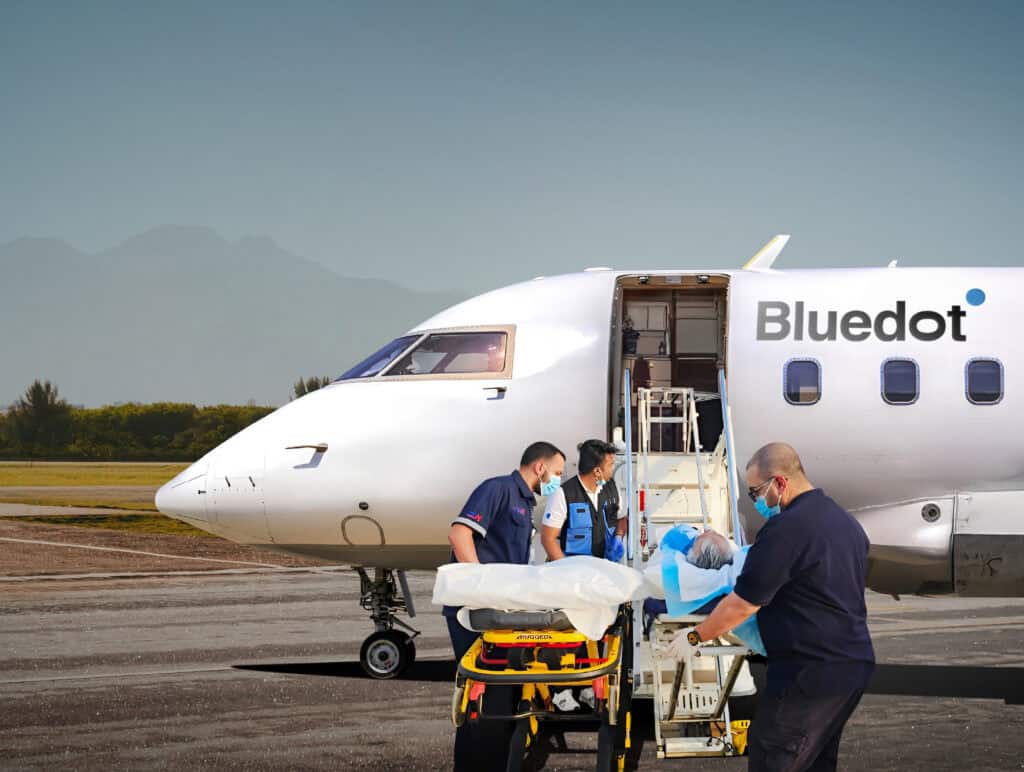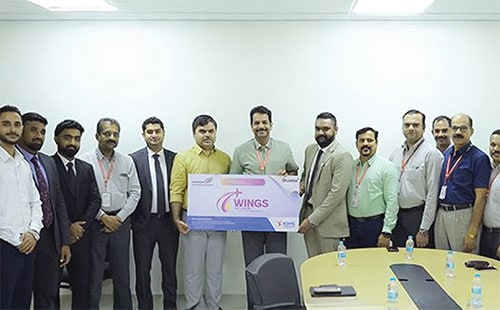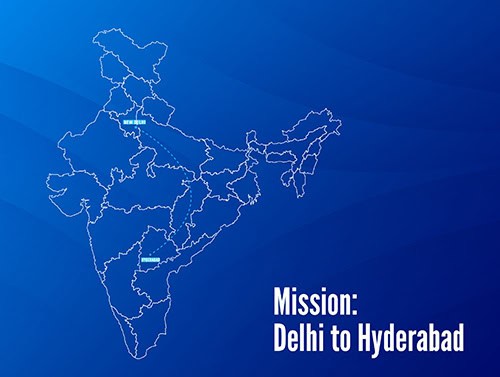Long Mission. Complex Condition.
As a flight physician, we often find ourselves stretching our capabilities, especially when dealing with critically ill paediatric patients. Our most recent mission involved an 8-year-old boy with severe cardiac failure and dilated cardiomyopathy, further complicated by multi-organ failure. This 14-hour transfer from Tbilisi, Georgia to Hyderabad, India required meticulous planning and flawless execution, involving coordination among the flight medical team, flight operations, treating teams, and ground ambulance services at both ends.
Overcoming Multiple Challenges
One of the primary challenges we encountered was the language barrier at both operational and clinical levels upon arrival. Despite this, we managed the complexities of the patient’s delicate condition, which included multiple invasive lines, inotropes, drains, and impaired liver and renal functions. With a tight window for a safe transfer, continuous communication between the Bluedot medical team and the treating team in Tbilisi was crucial.
Addressing Family Concerns
Every step of the mission was executed with careful planning and checks. We prepared for all potential scenarios to ensure the patient’s safe repatriation. While handling such a medically critical case is a significant part of the mission, addressing the family’s concerns and providing clear, reassuring communication about the transfer process was equally important.
Historic & Successful Team Effort
Despite the hurdles, we successfully transferred the patient to Apollo Hospital, Hyderabad, without any major incidents. The combined efforts and meticulous planning by everyone involved turned this mission into a significant achievement, earning a proud place in Bluedot’s history of successful missions.



